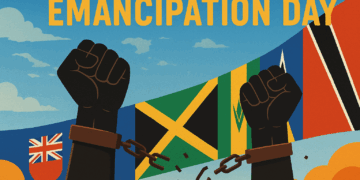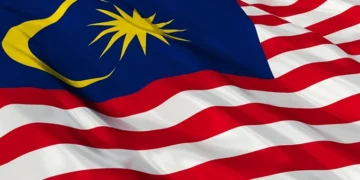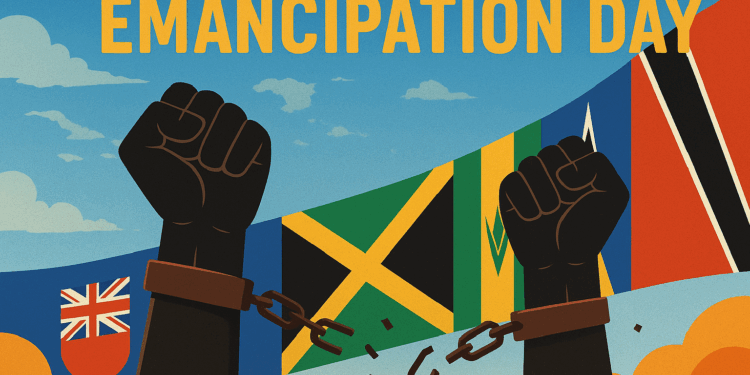By Emmanuel Nduka
The streets of Port of Spain came alive on Friday as the people of Trinidad and Tobago marked Emancipation Day with a vibrant outpouring of cultural pride, music, drumming, and traditional African attire.
But beyond the surface of celebration lies a deeper truth: Emancipation Day is a powerful national reflection on slavery’s legacy, African identity, and the enduring struggle for justice.
Observed annually on August 1, Emancipation Day commemorates the abolition of slavery in the British Empire in 1834, with full freedom granted in 1838 after a four-year apprenticeship period.
For many Trinidadians, especially those of African descent, the day is more than symbolic. It is a lived heritage, carried with pride and remembrance.
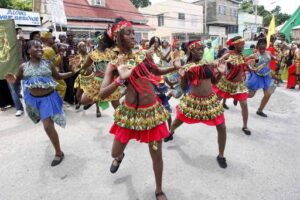
Below are five key facts that help unpack the cultural and historical significance of Emancipation Day in Trinidad:
1. Emancipation Was Won, Not Given
Although the Slavery Abolition Act of 1833 formally ended slavery in British territories, freedom for enslaved Africans came after generations of resistance. In Trinidad, events such as the Bushe Rebellion of 1837 highlighted the determination of enslaved Africans to claim full freedom and dignity.
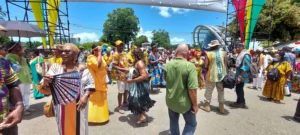
2. The Apprenticeship System Delayed True Freedom
While the Act took effect on August 1, 1834, formerly enslaved people were forced into an “apprenticeship” system that lasted until 1838, binding them to their former masters under continued exploitation.
3. Trinidad Led The Way In Honoring Emancipation
In 1985, Trinidad and Tobago became the first independent country to declare Emancipation Day a national public holiday, replacing the colonial “Discovery Day”. This move was a big step in affirming African identity and correcting historical narratives.
4. Emancipation Day Is Deeply Cultural
Today, the commemoration includes vibrant parades, drumming, lectures, exhibitions, and traditional dress. This year’s theme, “Shaping Sustainable Futures Through Reparatory Justice,” aligns with the African Union’s 2025 designation of the Year of Justice for Africans and People of African Descent Through Reparations.
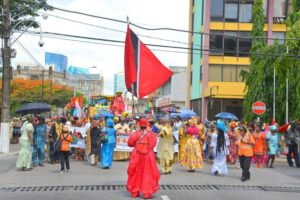
“My ancestors went through a lot, and they fought very hard for us to be able to have this holiday today,” said Kabira Floyd, a student participant in this year’s parade.
5. It’s A Tool For Education And Empowerment
Drummers, dancers, and cultural leaders see Emancipation Day as vital for teaching the younger generation about the strength and contributions of African people. “If they were properly educated in the greatness of African history, they would be more inclined to love themselves,” said Bongo Jack, a local drummer.
Capturing the spirit of the occasion, Zakiya Uzoma Wadada, Executive Chair of the Emancipation Support Committee of Trinidad and Tobago (ESCTT), said: “The Spirit of Emancipation lives in the rhythm of our people, those who sang truth to power, who wrote freedom into verses, and who moved mountains with melody and message. Our people are our strength, and these events honour the legacy of those who have carried the flame forward”.
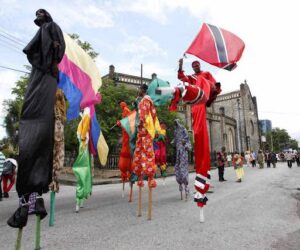
According to UN estimates, between 25 and 30 million Africans were forcibly removed from their homelands for slavery, many of them to the Caribbean.
Today, Emancipation Day in Trinidad and Tobago is a celebration of survival, a rallying cry for reparatory justice, historical recognition, and cultural self-determination.
